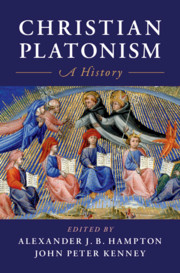Book contents
- Christian Platonism
- Christian Platonism
- Copyright page
- Dedication
- Contents
- Figures
- Contributors
- Acknowledgements
- I Concepts
- II History
- III Engagements
- 3.1 Christian Platonism and Natural Science
- 3.2 Christian Platonism, Nature and Environmental Crisis
- 3.3 Art and Meaning
- 3.4 Value, Dualism, and Materialism
- 3.5 Christian Love and Platonic Friendship
- 3.6 Multiplicity in Earth and Heaven
- Index
- References
3.6 - Multiplicity in Earth and Heaven
from III - Engagements
Published online by Cambridge University Press: 20 January 2021
- Christian Platonism
- Christian Platonism
- Copyright page
- Dedication
- Contents
- Figures
- Contributors
- Acknowledgements
- I Concepts
- II History
- III Engagements
- 3.1 Christian Platonism and Natural Science
- 3.2 Christian Platonism, Nature and Environmental Crisis
- 3.3 Art and Meaning
- 3.4 Value, Dualism, and Materialism
- 3.5 Christian Love and Platonic Friendship
- 3.6 Multiplicity in Earth and Heaven
- Index
- References
Summary
This paper explores Platonic and Aristotelian thought on multiplicity, forms, and matter, and considers the relationship between Abrahamic and pagan understandings of the order of divine creation.
- Type
- Chapter
- Information
- Christian PlatonismA History, pp. 472 - 491Publisher: Cambridge University PressPrint publication year: 2020

